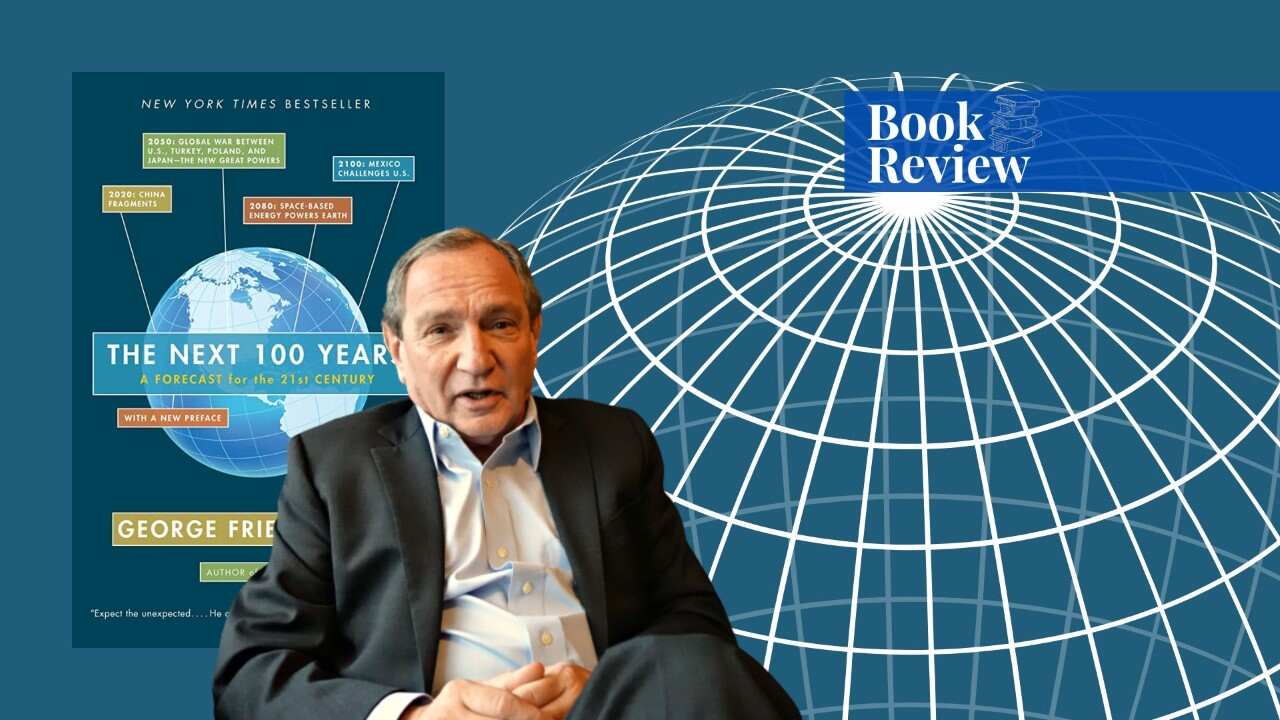Mr Muhammad Shehryar is currently pursuing his Bachelor's in International Relations at the University of Peshawar.
Introduction
We are seeing different trends emerge in the world that might not have been imaginable a century ago. The power structure from the last century has changed so rapidly that most of the states have tasted the protocol of having a powerful state and also have tasted the ferocity of destruction at the hands of other powerful states.
The 20th century is thought by many to be the most deadly century, in which two world wars were fought. Millions of people died, and millions were forced to evacuate their lands. The Cold War made the other half of the twentieth century the most suffocating, as both the powerful states (the US and the USSR) were about to experience a nuclear holocaust.
As the century turned from bipolar to unipolar, the war on terror started along with the looming, ferocious climate change. Many powerful states have emerged in different regions of the world, and these states are going to decide the coming decades of this century.
Overview
The author conducts an in-depth examination of historical trends and draws on contemporary geopolitical and geostrategic forecasting in order to identify potential trends and foresee the course of global politics. Friedman’s analysis is based on an extensive study of history and geopolitics, despite the fact that some of his predictions may seem fanciful or unrealistic.
The Next 100 Years: A Forecast for the 21st Century makes a significant contribution to the ongoing debate over the future of the globe in the twenty-first century, whether or not his prediction is realized. He achieves an effective mix of giving comprehensive information and making his projections understandable to a wider audience.
Theme of the Book
Friedman begins The Next 100 Years by stating his core opinion that the international system is intrinsically unstable and that power transitions are a natural and repeating phenomenon in world history. He contends that the balance of power is continually shifting and that this dynamic will continue to impact international relations in the future.
He then identifies four geopolitical zones as the most important players in the twenty-first century: the United States, Europe, Russia, and China. According to Friedman, each of these regions has distinct strengths and limitations, and the interplay between them will determine global politics in the future.
The Next 100 Years is structured into three major sections, each of which focuses on a distinct time period in the next 100 years. During these time periods, he outlines several features and power structures for the following decades. The first section looks at the bygone decade which was from 2010 to 2020. The second portion diagnoses the middle of the century, from 2020 to 2050, while the third part addresses the latter half of the century, from 2050 to 2100.
United States
One of Friedman’s key topics in his book is the United States’ relative fall as a worldwide superpower. According to Friedman, rising nations such as China, Russia, and India will pose greater threats to the United States. He claims that the United States will lose its global dominance due to a combination of economic, military, and demographic factors.
According to Friedman, one of the primary causes of this reduction is the United States’ reliance on foreign oil. He claims that as domestic oil output drops, the US will become increasingly subject to energy shortages and price shocks. This, in turn, will lead to a greater reliance on imports, making the US more vulnerable to the policies of oil-producing countries such as Saudi Arabia and Russia.
Another factor that Friedman believes will contribute to the decline of the US is demographic change. He notes that the US is aging rapidly, with the baby boomer generation entering retirement and placing a strain on the country’s social security and healthcare systems. At the same time, the birth rate in the US is declining, which means that the country will have a smaller workforce to support its aging population.
Friedman also believes that non-state entities such as terrorist groups and cybercriminals would pose greater difficulties and strains to the United States. He claims that these groups will be able to carry out attacks and weaken the country’s security by exploiting the vulnerabilities of the US’s open society and technical infrastructure.
Despite these problems, Friedman is hopeful about the United States’ long-term prospects. He emphasizes the country’s great legacy of innovations and entrepreneurship, which he believes will assist it in overcoming problems and maintaining its place as a worldwide leader. He also points out that the United States has significant military and geopolitical might, which he believes might help it maintain its place as a superpower.
Russia
After discussing the United States’ geographic and economic advantages, Friedman contends that Russia’s geopolitical situation is unique and that its future is defined by its past experience as a Eurasian power. He observes that Russia has always served as a buffer zone between Europe and Asia and that its location gives it the ability and allows it to influence events on both continents.
Friedman believes that Russia’s history has molded its political culture, which prioritizes strong leadership and the centralization of power. He contends that Russia’s current political system, led by President Vladimir Putin, is a continuation of this history and is unlikely to alter in the near future.
Russia’s principal geopolitical goal, according to Friedman, is to maintain its dominance over its traditional sphere of influence, which encompasses Eastern Europe, the Caucasus, and Central Asia. He observes that Russia’s historical experience has made it apprehensive of foreign meddling in this region and that it will go to any length to prevent NATO and other Western organizations from expanding into this area.
Friedman believes that Russia’s relationship with the US will remain strained in the future and that the two countries will struggle for dominance in Eurasia. He contends that the US would want to preserve its dominance in Europe and Asia, while Russia will seek to keep the US out of its area of influence.
Despite this competition, Friedman believes that there are areas of potential cooperation between Russia and the United States. He notes that both countries share a common interest in preventing the proliferation of nuclear weapons and in fighting terrorism. He also argues that Russia’s energy resources could be a source of cooperation, as the United States seeks to reduce its dependence on Middle Eastern oil.
China
China, on the other hand, is a rising power with a rapidly growing economy during the last few decades. He observes that China’s ascent is not a new event but rather a continuation of a trend that began in the late 1970s when the country began to open up to the outside world. According to Friedman, China’s development is not necessarily a threat to the United States but rather a challenge that the United States must be prepared to face.
Friedman contends that China’s ascent is not inevitable and that the country confronts a number of hurdles that could stymie its progress. China’s population problem is one of the most serious challenges it faces. The country’s one-child policy, which was implemented in 1979, has led to an aging population and a shrinking workforce. This demographic problem could lead to slower economic growth in the future, and could also strain China’s social welfare system.
Another issue that China faces is a scarcity of natural resources. While the country has a large population and a growing economy, it has limited natural resources such as oil and gas. China has been trying hard to get energy resources from other countries, but this strategy may grow more challenging as other countries compete for those resources.
Friedman also argues that China confronts major political issues. The Communist Party’s authoritarian political structure may limit the country’s ability to innovate and adapt to new conditions. Control of the media and the internet by the government may also hinder the country’s capacity to engage with the rest of the world and learn from other countries.
Despite these challenges, Friedman believes that China will continue to grow and become a major player on the global stage. He notes that China has a long history of civilization and that its people are resilient and adaptable. Friedman also believes that China will become more assertive on the international stage as it seeks to protect its interests and expand its influence. However, he argues that China is unlikely to become a hegemonic power and that the country will face significant challenges in maintaining its rise.
Why this Book
One of the major advantages of The Next 100 Years is Friedman’s ability to synthesize complex geopolitical trends and distill them into clear and concise predictions about the future. His analysis of the four major regions is particularly insightful, and it provides a valuable framework for understanding the evolving dynamics of global politics.
Friedman’s focus on the importance of power transfers and the inherent volatility of the international system serves as a valuable reminder that the world is continuously changing, with new problems and possibilities appearing all the time.
Another strength of the book is its broad scope. Rather than focusing on a specific issue or region, Friedman provides a comprehensive analysis of the major trends that will shape the 21st century. This allows readers to develop a more nuanced understanding of the complex interplay between different factors, and to see how seemingly disparate issues are interconnected.
Conclusion
In conclusion, George Friedman’s The Next 100 Years is a thought-provoking and fascinating read that challenges readers to think deeply about the future of our world. Through his insightful analysis and predictions, Friedman paints a vivid picture of the geopolitical landscape that awaits us in the coming century. While some of his predictions may be controversial or unsettling, they are nevertheless grounded in a deep understanding of history, human nature, and the forces that shape our world.
As such, The Next 100 Years offers valuable insights for anyone who wishes to better understand the complex and ever-changing world in which we live. Ultimately, this book reminds us that the future is always uncertain and that the choices we make today will have profound implications for generations to come.
It is a timely reminder that we must be thoughtful, proactive, and courageous in our efforts to shape the world in which we live. In short, The Next 100 Years is a must-read for anyone who cares about the future of our planet, and the role that we all have to play in shaping it.
If you want to submit your articles, research papers, and book reviews, please check the Submissions page.
The views and opinions expressed in this article/paper are the author’s own and do not necessarily reflect the editorial position of Paradigm Shift.



















